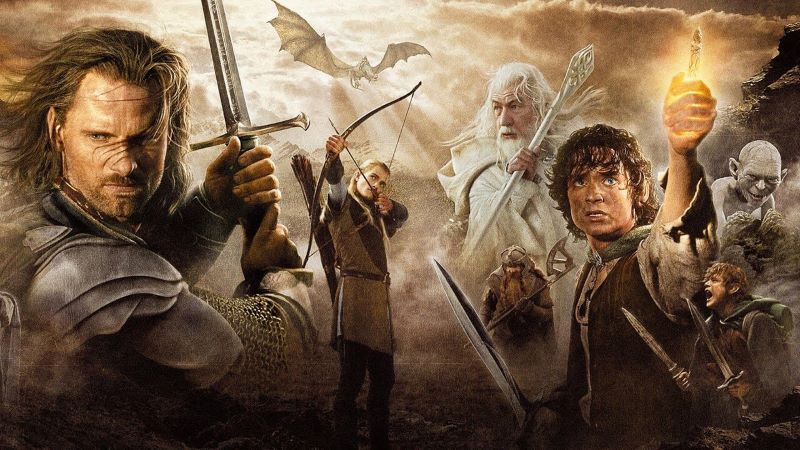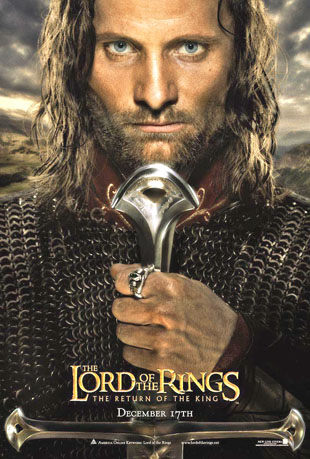
A Swedish video game company has bought film/TV and merchandising rights to the “Lord of the Rings” franchise for a large though undisclosed sum, as movie-related intellectual property has exploded in value since “Star Wars” in 1977. The rights package covers all the works of the late R.R. Tolkien’s fantasy-world literary works including the “The Hobbit.”
The purchase price is thought to be around $2 billion for Embracer, which sports a $8.5 billion stock market capitalization and has grown fast via a patchwork of acquisitions. An Embracer press release says that its “Asmodee Group is already one of the most successful licensees of ‘The Lord of the Rings’ and ‘The Hobbit’ through board games and card games, having published over a dozen games with over 100 expansions since the release of ‘The Lord of the Rings’ board game over 20 years ago.”
The seller is the Saul Zaentz Co., which is in the estate of the late music and film empresario who died in 2014. Zaentz Co. acquired expansive film/TV rights to the “Lord of the Rings” franchise in 1976, but a Variety article by K. J. Yossman notes: “Left out of the original deal, however, was the right to produce a TV series more than eight episodes long. This loophole meant that Amazon were able to negotiate directly with Tolkien’s estate to make the TV series and it is unclear whether the sale to Embracer will have any impact on the series, which launches next month. Variety has reached out to Amazon for comment.”
Amazon Studios spent a reported $465 million for season one of its “Lord of the Rings: The Rings of Power” TV series premiering Sept. 2 on the Amazon Prime streaming service. However, the Zaentz deal gives clear rights to Embracer for motion picture, video game, board game, merchandising, theme parks and stage production rights.

Author Tolkien died in 1973 (he was a British officer in World War I combat) and his fantasy literature books were published starting in 1937. So Tolkein copyrights will expire in the years and decades ahead into mid-century on a staggered basis around the world. Copyright expirations mean the intellectual properties will enter the “public domain” where they are free to be used.
The modern movie merchandise era exploded with the original “Star Wars” in 1977, which became a movie licensed-merchandise bonanza and grossed $461 million domestically. In a fascinating sidelight, filmmaker George Lucas farsightedly agreed to minimum pay as the sci-fi film’s director in exchange for the bulk of merchandise rights. At the time, 20th Century Fox was happy to oblige to cut the studio’s upfront expense on salary.
“In a famous turn of events, ‘Star Wars’ writer-director George Lucas agreed to reduce his salary as a filmmaker, reportedly $100,000, in exchange for Fox agreeing to let him have the film’s merchandising rights and other, lesser noncash consideration,” says the book “Marketing to Moviegoers”/third edition. “At the time ‘Star Wars’ hit theaters, it had just 10 licensees, but that mushroomed when the sci-fi fantasy exploded in box office.” Lucas also had a strong hold on sequel rights from that transaction, after which Hollywood studios were careful afterwards to retain.
The book “Marketing to Moviegoers” continues: “Sorting-out rights is a constant tug of war. In 2003, Marvel filed three related lawsuits against Sony’s Columbia Pictures over royalties for the ‘Spider-Man’ films. A June 2004 settlement made Marvel the lead party in licensing deals via a joint venture with the studio called Spider-Man Merchandising LP. The settlement results in all merchandise-royalty revenue flowing through Marvel, which increased its reported sales while it was a publicly traded company before the Disney acquisition, even though a big chunk of that money automatically is paid to Sony.”
A postscript to the “Spider-Man” royalty saga is that Sony Pictures sold merchandise and some ancillary rights to “Spider-Man” in 2011 for $278 million to raise quick cash when the Sony studio hit a rough financial patch. The buyer was Walt Disney Co., which owns the underlying comic book property from its $4 billion purchase of Marvel Comics in 2009. Movies and merchandise assets drove those transactions in the hundreds of millions and billions of dollars.
The seller of the “Lord of the Rings” merchandise rights, the estate of the late Saul Zaentz, has an interesting background. Zaentz optioned movie rights to “Lord of the Rings,” which he was never able to launch on a significant scale though profited when others did. Zaentz was in the driver’s seat when Warner Bros.-owned New Line Cinema that made the hugely successful trilogy of movies released in 2001, 2002 and 2003. In his career, Zaentz did win three Oscars for Best Picture including “One Flew Over the Cuckoo’s Nest” for 1975.
Related content:
Leave a Reply